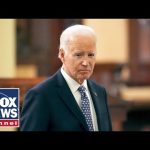America watched in real time as ABC abruptly pulled Jimmy Kimmel’s late-night program off the air this week after a firestorm over his monologue about the assassination of conservative activist Charlie Kirk. Major station groups including Nexstar and Sinclair preempted the show, and the network announced an indefinite suspension amid mounting pressure. The sudden move has exposed how quickly the establishment media will fold when corporate and regulatory powers decide a narrative must be punished.
Kimmel’s monologue suggested the shooter might be politically aligned with conservatives and mocked those who disputed that portrayal, even as he offered sympathy to the Kirk family, a combination that many found callous and irresponsible. Conservatives argued, rightly, that his remarks were not just ill-judged but reckless at a time when facts were still emerging. This was not merely late-night banter — it was a powerful national platform shaping impressions during a sensitive criminal case.
What ramped the situation to crisis level was the intervention of the FCC chair, who publicly threatened consequences and signaled willingness to use federal authority to compel action from broadcasters. That threat sent the business chiefs at Nexstar and Sinclair scrambling to preempt the program to avoid regulatory scrutiny and potential fines. When regulatory muscle meets corporate self-preservation, free speech on major networks can vanish overnight — and the press that once defended dissent now practices instant discipline.
Conservatives and critics of late-night sanctimony celebrated the suspension as overdue accountability for a culture of celebrity contempt toward millions of Americans who reject political grandstanding. President Trump and other Republican voices publicly lauded the network’s decision, highlighting how ratings and public outrage can finally make the entertainers answer for defamatory or misleading commentary. This moment should remind viewers that the First Amendment does not shield irresponsible, misleading national broadcasts from marketplace consequences.
Hollywood predictably rallied to Kimmel’s defense, with stars and unions decrying what they call censorship and political coercion, but that outcry should not be mistaken for a principled defense of free expression. Too often, the same elites who pontificate about free speech only want protection for opinions that align with their worldview. Calling out double standards is not censorship; it’s insisting that national platforms meet basic standards of professionalism and accuracy.
Networks now face a choice: either stand up for consistent editorial standards and restore trust with viewers, or keep bending the knee to political and regulatory pressure that rewards cowardice. If ABC and its affiliates want to regain credibility, they should apply the same accountability to every host, on every side, and stop letting a partisan cultural class set the rules for the rest of the nation. Americans deserve media that informs rather than manipulates, and this episode should be a wake-up call that the era of untouchable celebrity opinion is coming to an end.




